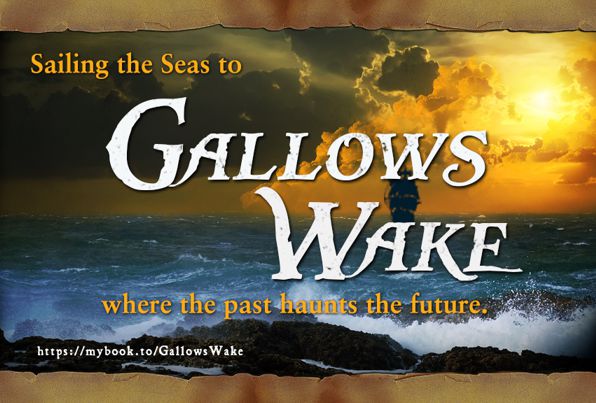
Where the Past haunts the future…
Damage to her mast means Sea Witch has to be repaired, but the nearest shipyard is at Gibraltar. Unfortunately for Captain Jesamiah Acorne, several men he does not want to meet are also there, among them, Captain Edward Vernon of the Royal Navy, who would rather see Jesamiah hang.
Then there is the spy, Richie Tearle, and manipulative Ascham Doone who has dubious plans of his own. Plans that involve Jesamiah, who, beyond unravelling the puzzle of a dead person who may not be dead, has a priority concern regarding the wellbeing of his pregnant wife, the white witch, Tiola.
Forced to sail to England without Jesamiah, Tiola must keep herself and others close to her safe, but memories of the past, and the shadow of the gallows haunt her. Dreams disturb her, like a discordant lament at a wake.
But is this the past calling, or the future?
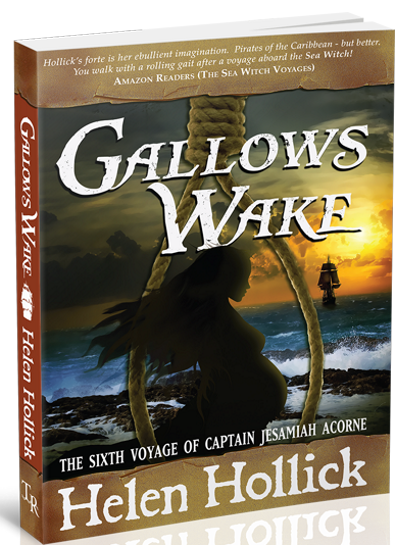
The Fact within the Fiction
Thank you, Mercedes for hosting me today! For any reader, any novel must have an authentic air of believability about it so that the story and the characters come alive, become real. Get the facts wrong and the fiction falls apart.
A long time ago I read a novel set in Roman Britain, one scene involved soldiers up on Hadrian’s Wall. The author had wonderful description: the biting wind, the grey skies, the bleakness of the landscape, the boredom of the characters. Then the scene turned to cooking dinner. The collecting of wood, the warmth of the fire, the hunger – my stomach was rumbling as much as theirs. They tucked in with eagerness. And the whole thing fell apart because they were eating rabbit and potato stew.
The rabbits I could, just about forgive, as it is believed Coneys (rabbits) were not introduced into Britain until the eleventh century, although they might have been brought in by the Romans. But potatoes? Surely everyone knows it was good old Sir Walter who brought the humble spud to Britain during the reign of Elizabeth I? Hare and root vegetable stew would have been acceptable. Potatoes? No. I put the book down. Never finished it.
As writers of historical fiction most of us (sadly, not all) try our best to ensure that we get our facts as right as we can – a little writer’s licence can maybe be forgiven if the story needs it, perhaps a slight manipulation of a date or a location for instance. I do change a few ‘facts’ in my Sea Witch Voyages, usually because I also have some fantasy elements and I need to set a scene for something supernatural or out of the norm – sometimes even for the plot of a future Voyage yet to come. (As an example: I mention the Jewish community having to flee Lisbon in the 1700s. Not quite accurate, but I have an idea for a future Voyage…)
Having said all that, it isn’t always easy to ensure all the facts are facts. None of us were actually there in Roman Britain, or at the Battle of Hastings, at the Tudor court or working in a Victorian mill. We research and use our imaginations. Slipping information into a story, however, gives reality background to what is going on. For instance some of my characters arrive at Roscoff, in France. In the late 1700s/early 1800s Roscoff was one of the main French smuggling havens. In 1719, when Gallows Wake is set, however, it was just a small fishing village, but smuggling must have been going on for it to have escalated by the end of the century. I also needed something to anchor the place, and my characters, into the period. I Googled for the history of the place. Didn’t come up with much that was useful, but there were a few things that I thought I could use.
Here’s the result.
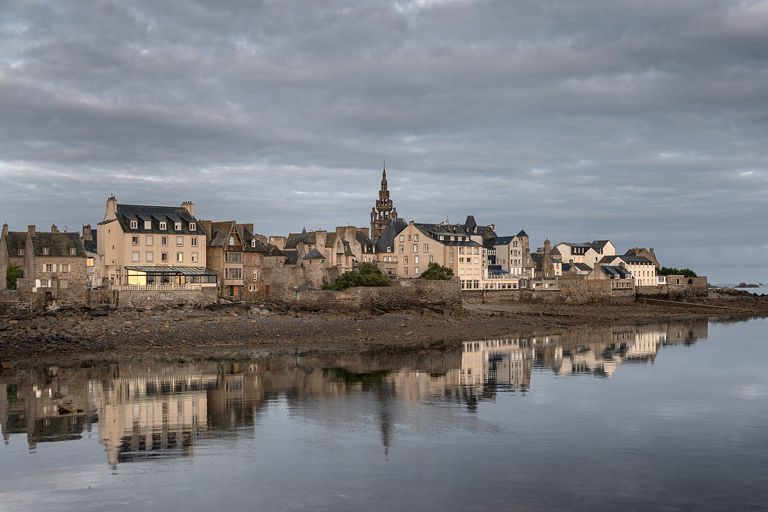
Roscoff, France 1719
Roscoff. As a village it was little different from any other small Breton fishing village, the inhabitants, Roscovites, no different from any other fisher-folk who struggled to make a meagre living along any part of a French, Breton, Norman or Cornish coast. There was, however, a difference but not one openly visible, especially where strangers were concerned. Roscoff was flourishing as a smugglers’ trading centre. A quiet, protected harbour, within easy reach from Cornwall, Devon, the English south coast, the rest of France, Portugal, Spain – and from across the Atlantic. Contraband passed hand to hand with no one in authority seemingly being aware of it: Spanish brandy, Indian tea, French lace, Dutch genever, Portuguese spices. The use of small villages and deserted coves meant the customs men were unaware of the trade, although suspicion was beginning to be aroused, but what could they do to stop it? One or two poorly armed, inexperienced men against a growing number of wily smugglers? Even so, strangers coming ashore at Roscoff were greeted politely but warily. It was jested among the locals, that the only stranger they had greeted with joy and open arms had been the six-year-old Scots Queen, Mary Stuart, when she had disembarked at Roscoff in 1548 en route to being betrothed to the French Dauphin, François.
The village itself was a scatter of granite buildings nestled along the secluded stretch of coast, with several meagre bothies of wood and reed thatch for the less well-off dotted here and there to north and south. Nearly everyone fished in boats large or small, in good repair or weatherworn and falling apart. Nearly everyone regularly smuggled something in or out, save for the priest, the chandler, the draper and the landlords of four different taverns who eagerly accepted the illicit goods. All readily exchanged goods for contraband, the priest playing his part by allowing the crypt beneath his church to be used for storage. Only the farmers with their inland acres, growing their prestigious crops of highly regarded onions showed no interest in smuggling. Onions carried no import or export tax.
* * *
What my characters did there – and why they were there in the first place – I’m afraid, if you want to know the answers you’ll have to read the book!
Amazon Author Page (Universal link) https://viewauthor.at/HelenHollick
Where you will find the entire series waiting at anchor in your nearest Amazon harbour – do come aboard and share Jesamiah’s derring-do nautical adventures!
(available Kindle, Kindle Unlimited and in paperback)
Or order a paperback copy from your local bookstore!
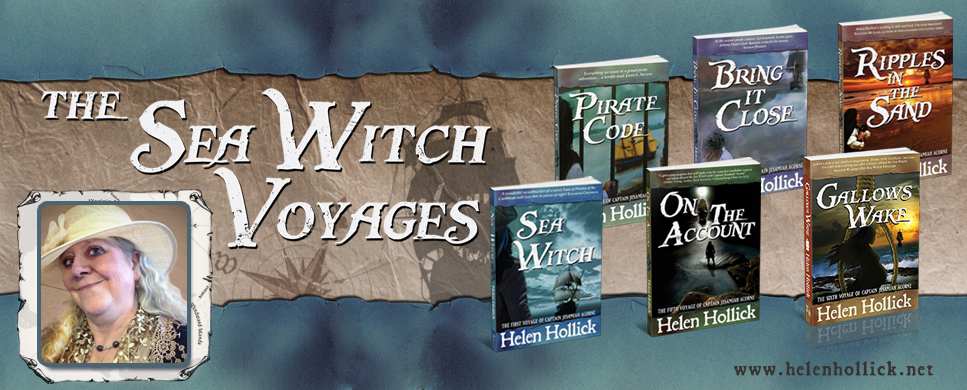
Meet Helen Hollick
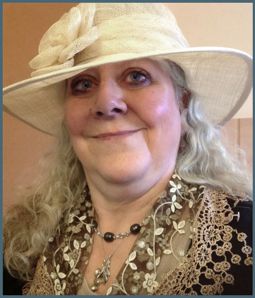
First accepted for traditional publication in 1993, Helen became a USA Today Bestseller with her historical novel, The Forever Queen (titled A Hollow Crown in the UK) with the sequel, Harold the King (US: I Am The Chosen King) being novels that explore the events that led to the Battle of Hastings in 1066. Her Pendragon’s Banner Trilogy is a fifth-century version of the Arthurian legend, and she writes a nautical adventure/fantasy series, The Sea Witch Voyages. She is now also branching out into the quick read novella, ‘Cosy Mystery’ genre with her Jan Christopher Murder Mysteries, set in the 1970s, with the first in the series, A Mirror Murder incorporating her, often hilarious, memories of working as a library assistant.
Her non-fiction books are Pirates: Truth and Talesand Life of A Smuggler. She lives with her family in an eighteenth-century farmhouse in North Devon and occasionally gets time to write…
Connect with Helen
Website: https://helenhollick.net/
Twitter: https://twitter.com/HelenHollick
Facebook: https://www.facebook.com/HelenHollick
Amazon Author Page: https://viewauthor.at/HelenHollick
Goodreads:https://www.goodreads.com/author/show/477847.Helen_Hollick
Newsletter Subscription: http://tinyletter.com/HelenHollick
Thank you so much for hosting my Port of Call today Mercedes